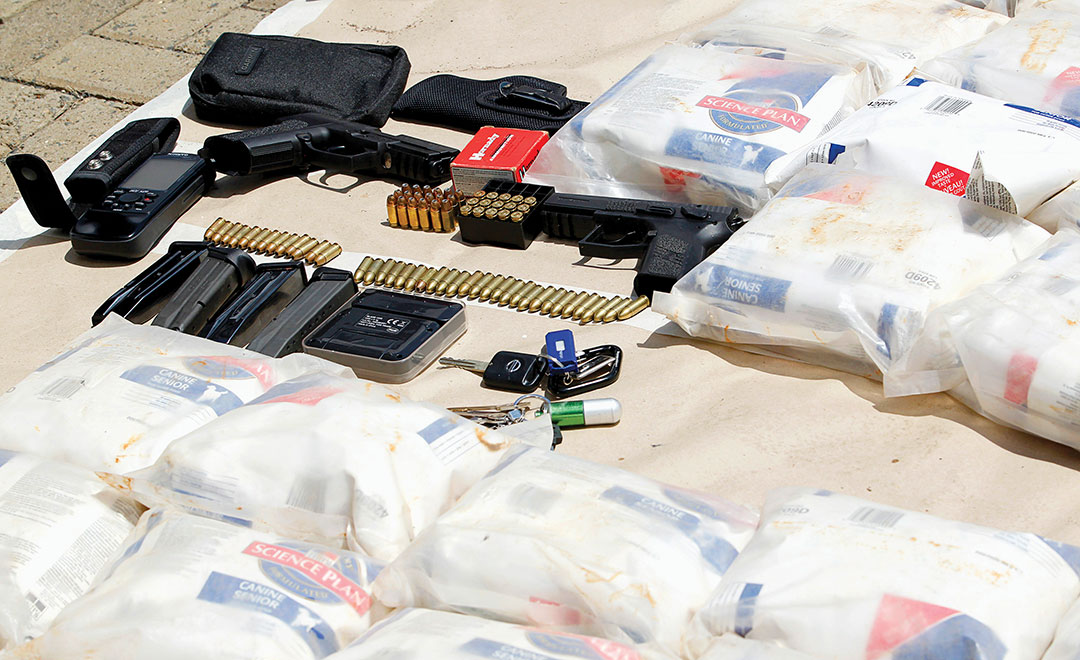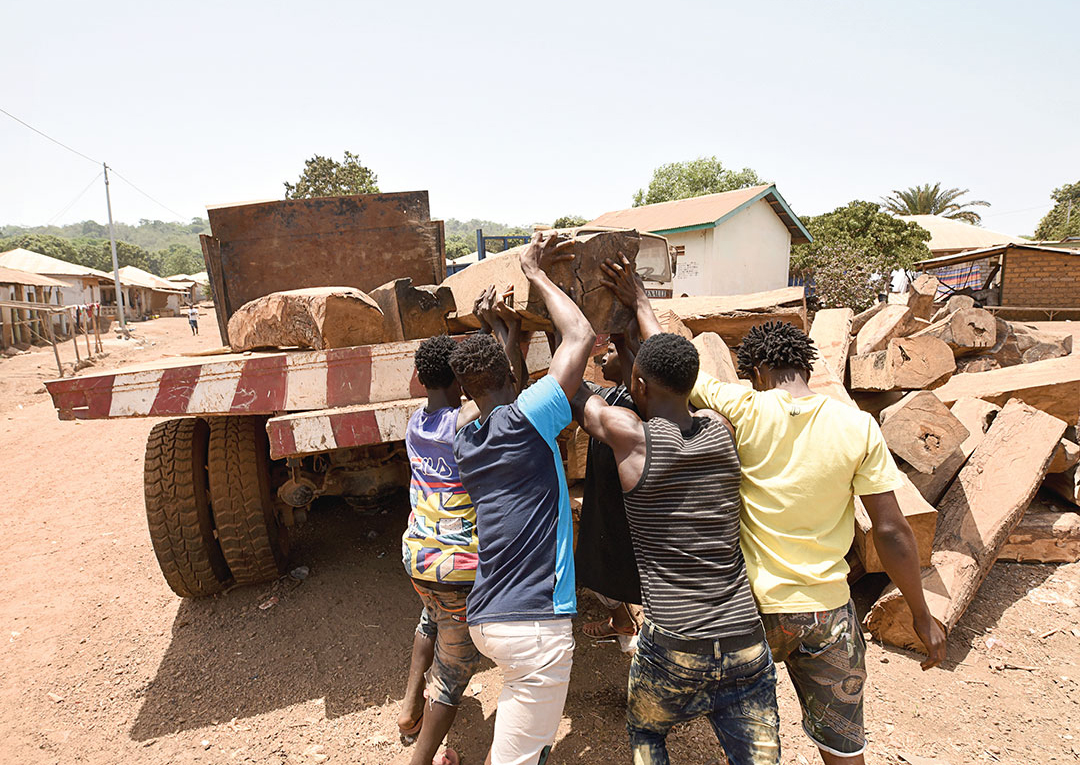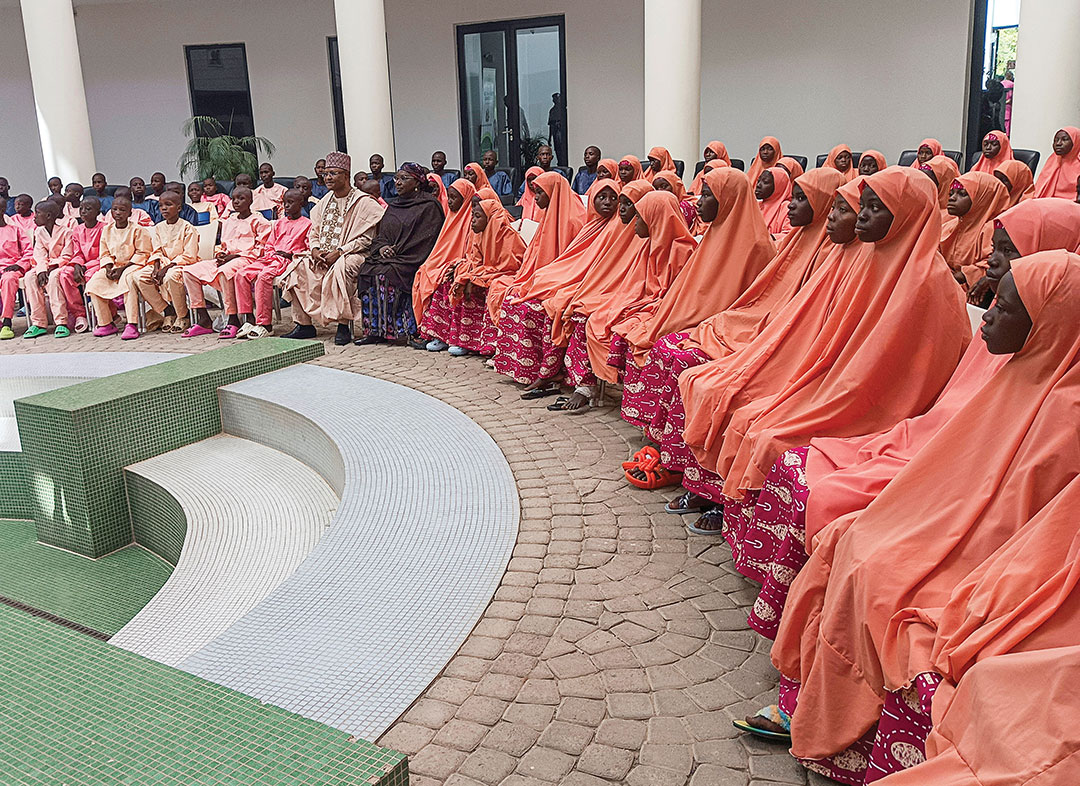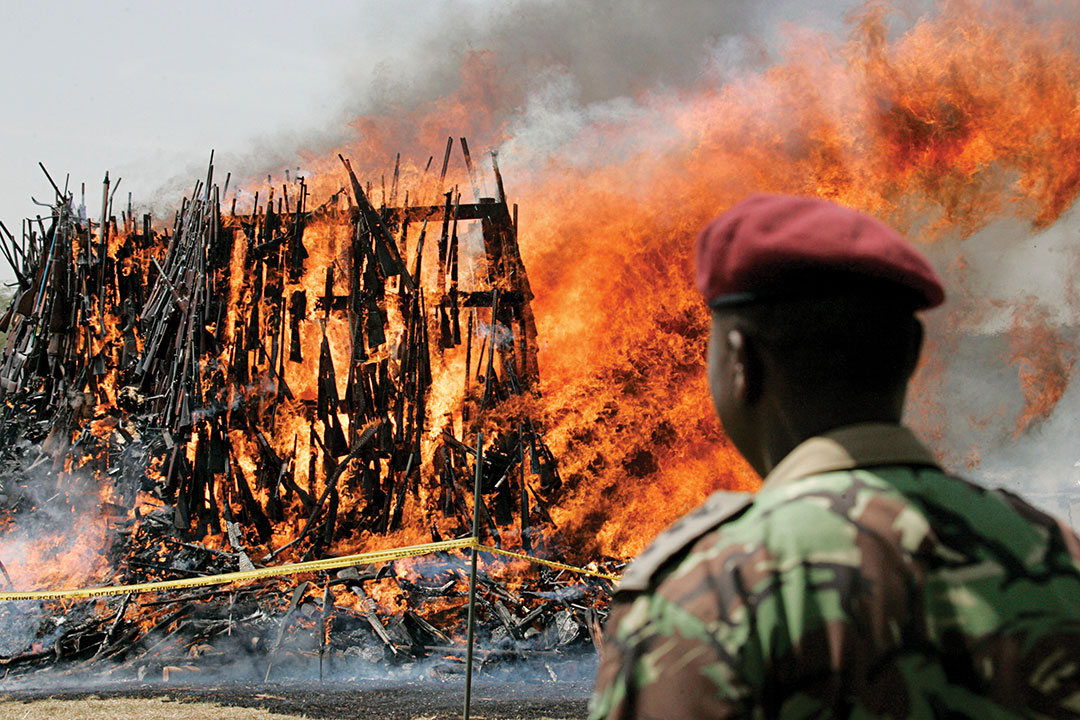ADF STAFF | Photos by Reuters
Recent seizures of illegal drugs in the Sahel indicate that the conflict-riddled region is becoming a busy route for drug trafficking.
In 2022, authorities seized 1,466 kilograms of cocaine in Burkina Faso, Chad, Mali and Niger, compared to an average of 13 kilograms between 2013 and 2020, according to an April 2024 United Nations report.
“Although annual estimates were not available for 2023, 2.3 tons of cocaine had already been seized in Mauritania by June 2023,” the report said. “The region’s geographical location makes it a natural stopover point for the increasing amount of cocaine produced in South America en route to Europe, which has seen a similar rise in demand for the drug.”
The U.N. noted that the drug trade provides financial resources to armed groups in the Sahel, where extremist groups have expanded as countries in the region fall prey to military coups.
“Drug trafficking is facilitated by a wide range of individuals, which can include members of the political elite, community leaders, and leaders of armed groups,” the report said, adding that this enables armed groups to “sustain their involvement in conflict, notably through the purchase of weapons,” as reported by Al Jazeera.

The drug smuggling is among a wave of transnational organized crimes, or TOC, across the continent. The growing list of such crimes includes kidnappings for ransom, illicit weapons sales, money laundering, illegal financial flows, cybercrime, illegal logging, gold smuggling and human trafficking. The smuggling of endangered wildlife to China and other parts of Asia is a major enterprise involving animals such as pangolins.
In recent years, such crimes have escalated throughout Africa, triggered by political, socioeconomic and technological issues. Aggravating factors include weak and corrupt governance, unenforced border security, bribery, a lack of jobs, poverty and inadequate law enforcement. Increasingly inexpensive technology has created another path for major crimes.
“TOC occurs through networks, which allow criminal syndicates, local actors, and certain corrupt government officials to exploit cross-border differences in economics and policies, fuel illicit markets, and nimbly adapt to African states’ efforts to detect and punish them,” the Africa Center for Strategic Studies reports. “African states are bound in their counter-TOC efforts by governance principles like sovereignty, rule of law, and professional ethics, and are frequently faced with the challenge of calibrating joint strategic actions by military, police, and justice officials, as well as working with local leaders and supranational bodies to respond effectively.”
Organized crime throughout Africa extends to its oceans. Researcher Carina Bruwer, writing for the Institute for Security Studies (ISS) in 2023, said that a lack of government and industry accountability have turned Africa’s oceans into “the world’s biggest transnational crime scene.”
“The ocean is central to global illicit trade,” she reported. “Criminal networks plunder marine resources, scour shipping lanes for vessels to hijack, and traverse coastal state waters and the high seas to move commodities to distant destinations.”
Bruwer noted that Africa’s location between multiple global demand and supply markets made it a viable site for organized crime. “Africa’s east and west coasts are major narcotic transit hubs and global piracy hotspots. Deadly migrant smuggling from North Africa is rife, and to the south, marine resources like abalone and rock lobster face collapse due to illegal harvesting.”
Kidnappings for ransom in Africa include travelers, businesspeople, priests and those perceived as being wealthy. SBM Intelligence, a sociopolitical risk consultancy, reported that between July 2022 and June 2023, kidnappers abducted 3,620 people in 582 cases in Nigeria with about 5 billion naira, or nearly $4 million, paid in ransoms.
In 2023, Interpol and the African Union’s Afripol coordinated an operation across 25 African countries that enabled investigators to arrest 14 suspected cybercriminals and identify 20,674 suspicious cyber networks. Interpol said the networks were linked to financial losses of more than $40 million.
In Sudan, the Russian mercenary Wagner Group, which has been rebranded as Africa Corps, dominates the unprocessed gold market through control of an unnamed major refinery. A report in Atlas News estimates that nearly $2 billion in gold is smuggled out of the country annually. The gold bankrolls Russia’s war with Ukraine.
In April 2023, environmental investigators found illegal rosewood logging underway in Damongo, the capital of Ghana’s Savannah region. By some estimates, more than 6 million rosewood trees have been logged in Ghana since 2012, despite bans that have been imposed since then. The valuable hardwood is used to make custom furniture for the Chinese market.
By the most conservative estimates, 10,000 pangolins are trafficked illegally each year in Africa, CNN reported. Annamiticus, an advocacy group, says that because only a small percentage of the trade is apprehended or reported by the media, the actual number over the course of two years is anywhere from 117,000 to 234,000 pangolins. The pangolins are mostly used for their scales as an ingredient in traditional Chinese medicine, despite the scales having no medicinal value.

Nigerian officials reported in 2023 that the country’s losses from oil theft and other oil-related crimes amounted to $3 billion from 2017 to 2022. Nigeria’s Punch newspaper reported that officials recorded 7,143 pipeline vandalism cases during that same period, with 209 million barrels of crude oil and other products lost.
United States forces intercepted a dhow in international waters between Iran and Yemen carrying more than 2,000 AK-47 assault rifles in January 2023. Shipments of thousands of illicit weapons from the Iran-Yemen arms trade reportedly were transported via maritime routes to Somalia to be sold to violent extremist groups, including al-Shabaab.
In a 2024 report on human trafficking, Statista reported that in 2020, the majority of detected victims of human trafficking in Africa were women and girls. “The most common forms of exploitation were sexual exploitation and forced labor,” the research group reported. “In Southern Africa, for instance, 43 percent of victims were exploited for forced labor, while 48 percent were victims of sexual exploitation. Moreover, sexual exploitation was less prevalent among detected victims of human trafficking in East Africa (13 percent) than victims of forced labor (80 percent).”
LINKS TO TERRORISM
Some forms of transcontinental crime are strictly criminal enterprises with no links to ideologies, but some such crimes fuel terrorist groups. “The confluence between terrorism and transnational organised crime is as old as the history of each,” the ISS said in a 2023 study. “For terrorists, the financial gain from organised crime isn’t an end in itself but a means to a bigger political, religious or ideological goal.”
Ghada Fathi Waly of the United Nations Office on Drugs and Crime told the U.N. Security Council in October 2022 that terrorism and organized crime are linked throughout Africa, particularly in the Sahel, “which is acutely affected by the activities of active and deadly terrorist groups,” according to a U.N. report. She said studies conducted in the border areas of Cameroon, the Democratic Republic of the Congo and Gabon, along with the Central African Republic and Chad, focused on “the illicit trafficking of minerals as a source of funding for terrorist groups.” She said that illegally mined gold and other precious metals were “being fed into the legitimate market, providing huge profits for traffickers.”

in Kaduna.
Bankole Adeoye of the African Union told the Security Council that transnational organized crime networks were “instrumental in the illicit trafficking in weapons and ammunition that sustains the operations of terrorists and violent extremist groups, and also support natural resource‑related crimes, such as illegal mining exploitation, particularly gold, and the illicit trade in wildlife trophies, such as ivory,” the U.N. reported.
In recent years, three neighboring countries in East Africa have had to deal with specific types of transnational crimes: small arms and light weapons sales in Ethiopia, drug trafficking in Kenya, and smuggling in Somalia by al-Shabaab. The U.S.-based Wilson Center, a nonprofit research facility, conducted a 2020 study on the problems of the three countries. The center concluded that those countries, like other nations with similar problems, needed to recognize transnational organized crime as a governance and security challenge that requires a strategic solution.
The study also made recommendations for “key stakeholders,” including nongovernmental groups, to better fight and prevent transnational crimes. Those recommendations apply to any country dealing with transnational organized crimes:
- Apply established anti-crime strategies including tracing, freezing, seizing and confiscating the proceeds of crime. Build up professional state institutions, specifically in law enforcement and national security.
- Establish cross-border cooperation and information sharing, because transnational crime is borderless, and such measures are necessary to combat and prevent it.
- Foster partnerships and collaboration between the government, media, civil society and the private sector: “Encouraging free media to conduct investigations into these criminal networks and the corrupt officials who support them is essential.”
- Give incentives to civil society entities and private business leaders to advocate against corruption and illicit business activities. “Partnerships between governments and journalists, business leaders, and civil society activists can make a significant contribution to eradicating the TOC scourge from East Africa that is undermining the region’s peacebuilding efforts.”

2023 CRIME INDEX
The ENACT Africa Organised Crime Index tracks trends in transnational organized crime across the regions of Africa, as well as nations’ responses. ENACT is funded by the European Union and implemented by the ISS and Interpol. The reports are intended as a tool for policymaking and setting priorities in response to organized crime in Africa.
The 2023 ENACT report emphasizes the need for African nations to build resilience to resist and recover from such crimes. Its report ranks the 54 countries on the continent according to their levels of criminality on a score from 1 to 10, with 10 being the highest level of crime. It also ranks resilience from 1 to 10, with 10 being the highest level of resistance and recovery.
The 2023 report singled out Kenya as having to deal with multiple types of transnational crime.
“Kenya scores above average for all criminal markets assessed: human trafficking (8.0 out of 10); human smuggling (7.5); extortion and protection racketeering (7.0); arms trafficking (7.5); trade in counterfeit goods (7.0); heroin trade (7.5); cocaine trade (6.0); cannabis trade (6.5); synthetic drugs trade (5.5); cyber dependent crimes (8.0); and financial crimes (7.5),” the report said. “These illicit markets have a negative effect on nearly all parts of Kenyan society. They are not only highly profitable, but also increasing in their pervasiveness.”
Overall, the 2023 report concluded, African nations need to expand their efforts in new directions to deal with transnational crime.
“Most responses to organised crime on the continent tend to focus on institutional frameworks, such as enactment of laws, ratification of international instruments, and campaigns against organised crime as part of political rhetoric and national strategies,” the report notes. “A more holistic approach is needed that encompasses ‘softer’ measures, such as prevention, victim and witness support, and non-state actor initiatives.
“Countries cannot rely solely on legislation and policy without implementation. Engagement with a robust and active civil society is also needed to bolster resilience at [the] community level. Although the challenge of criminality is increasing, it can be mitigated through a concerted effort that encompasses all resilience building blocks. Countries on the continent need to diversify, intensify and strengthen their collective responses and efforts to build long-lasting resilience structures against organised crime.”


